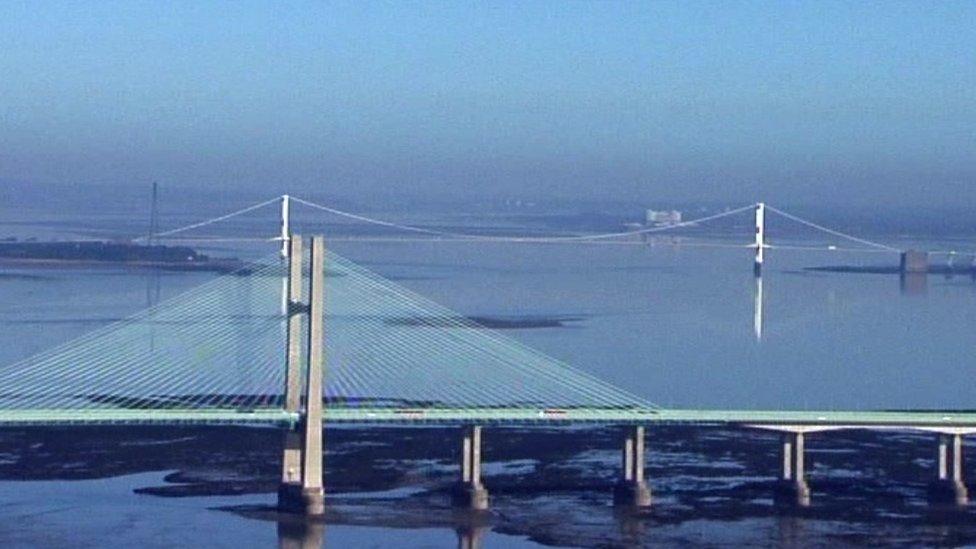Train tickets: Why getting from Cardiff to Bristol is so expensive
- Published
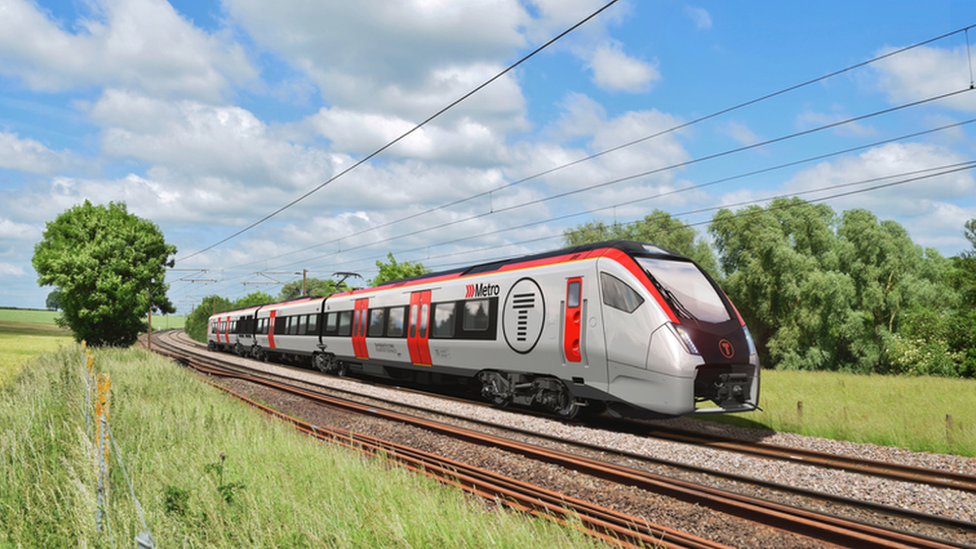
Transport for Wales is investing heavily in new trains to run on tracks in Wales
To the east and west of Cardiff, there are cities that are about 45 miles away.
So why does it cost £3,156 a year to travel to Bristol and £1,796 to go in the opposite direction to Swansea?
Following the M4 relief road's scrapping, ways are being explored to get cars off the motorway near Newport.
However, the end of Severn tolls and higher cost of tickets into England leave little incentive for commuters to get the train.
You can even get a first class ticket (£2,692 a year) to Swansea cheaper than a standard to Bristol, according to the National Rail Enquiries, external website.
"It shows that Wales and England are very much different countries for rail," said transport expert Stuart Cole.
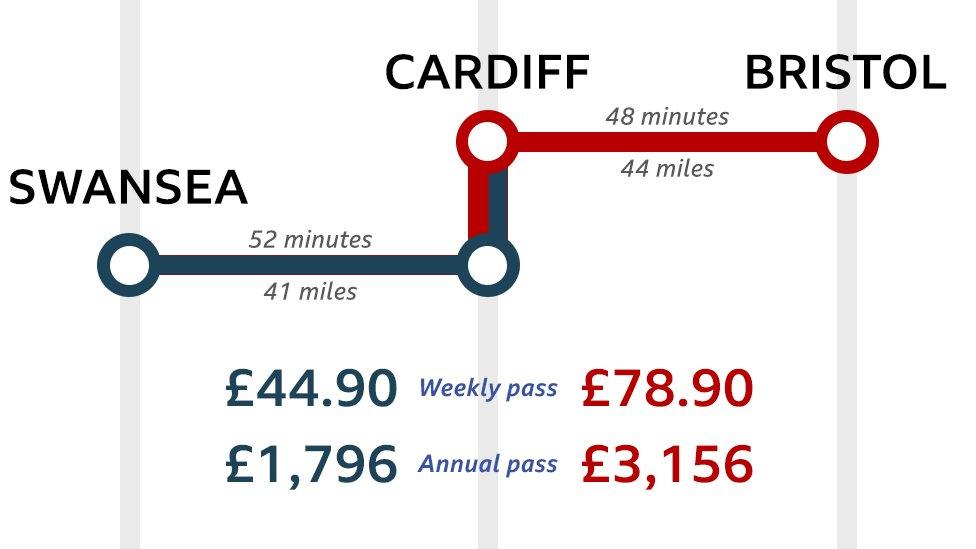
He pointed to many examples - a year's ticket from Aberdare to Cardiff - about an hour - costs £1,176, while travelling a similar distance into London is about £3,000.
Prof Cole said devolution of train travel in Wales allowed the Welsh Government to influence fares through its operator Transport for Wales (TfW).
It has done this partly by having two operators - TfW (formerly Arriva Trains Wales) and Great Western Rail running between Swansea and Cardiff.
"This has incentivised competitive fares for passengers on this route," a Welsh Government spokesman said.
"However, the route between Cardiff and Bristol has only been served through regular services by the Great Western franchise, which was last subject to competition by the Department for Transport in 2006."
A '15 year journey' to transform Welsh railway
He said requests had been made to the UK government for TfW services to run to Bristol, but it "turned these down".
However, it was announced on Friday that Grand Union Trains will become a second operator on the line from 2021.
The Welsh Government supported the proposal as rail travel is a key part of its transport strategy.
It has allocated £50m for a new park and ride rail scheme at Llanwern in eastern Newport, which would be 30 minutes from both into Cardiff and Bristol.
This would help ease congestion on the M4 - especially during major events such as rugby matches and pop concerts at the Principality Stadium.
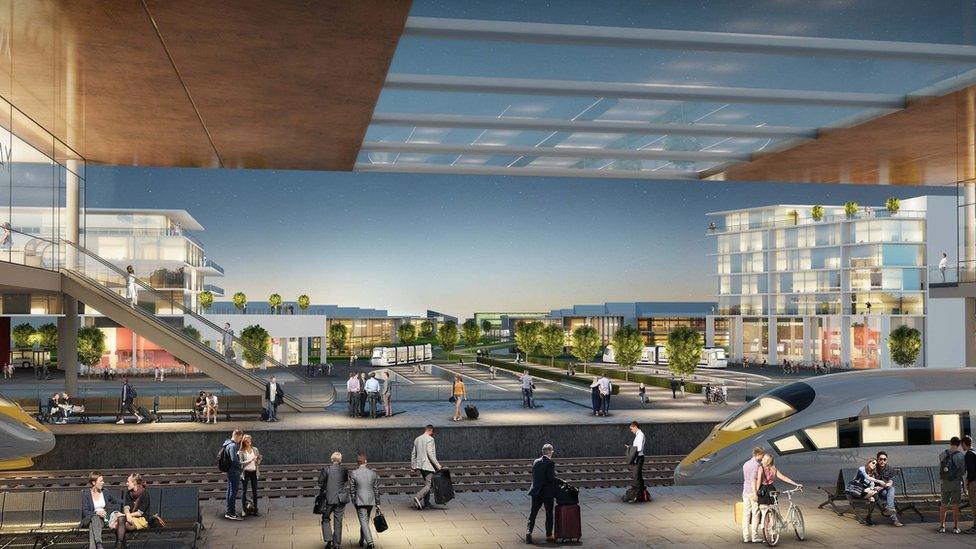
A Cardiff Parkway station could help ease motorway congestion
Work is also planned to start in 2020 on Cardiff Parkway Station - which the government described as being of "strategic significance".
As well as linking 32,000 St Mellons residents to the South Wales Metro, the aim is to connect commuters to Swansea and Bristol, keeping them off the M4.
Katherine Simpson, a business manager who lives in Cardiff and works in Bristol said: "The train is not an option really."
She spends about £2,000 a year - £40 a week - on fuel, considerably less than a £3,156 annual or £78.90 weekly train ticket.
"I work just outside Bristol and there's only train transportation into central Bristol," she said.
"It would mean a train then bus - so the train ticket is just the start of it. The bridge has made a difference as it has made working in Bristol affordable."
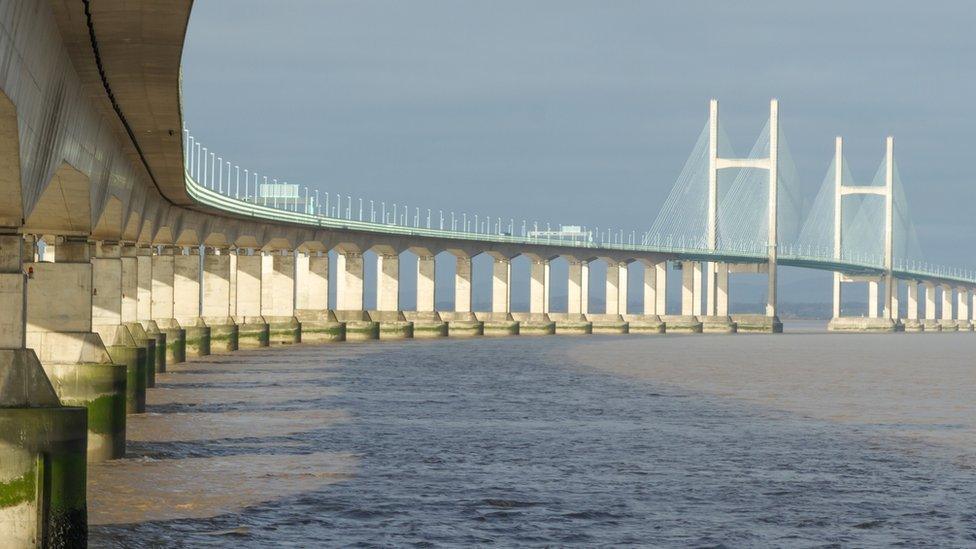
Tolls on both the M4 and M48 bridges over the River Severn were scrapped last year
Nicholas Allan, a Bristol-based sound editor, makes the journey in the opposite direction to visit family in Cardiff.
"I consider myself quite environmentally aware and believe it to be madness we all drive around in individual metal boxes, so I usually take the public transport option," he said.
"But considering the train fare is more than the equivalent fuel cost, it's too often a close-run decision."
He believes train prices and scrapping Severn tolls makes it easy for people to take the "environmentally damaging option".
Great Western Rail said the setting of fares goes back to the days of British Rail, which operated most overground train services until 1997.
Factors that affected prices included distance, speed and frequency of journey, subsidies, location and demand.
Therefore, if fewer people travelled to Swansea at the time, that meant the price was cheaper in order to encourage people to use the trains, along with the other variables listed above.
"We recognise that these historical differences occasionally create fare anomalies and we continually look for cost-effective ways to remove anomalies where possible," a TfW spokesman said.
These have included public consultations and discussions with wider industry.

This piece was inspired by a question from reader J Davies: Why is an annual rail season ticket from Cardiff to Bristol £3,156 but to Swansea it's just £1,796? Better rail service would ease M4 congestion.
What questions do you have about Wales, or its people and places?
Is there anything you've always wanted to know?
Use this form to send us your questions:
If you are reading this page on the BBC News app, you will need to visit the mobile version of the BBC website to submit your question on this topic.
We may get in touch if we decide to follow up on your suggestion.
- Published15 June 2019
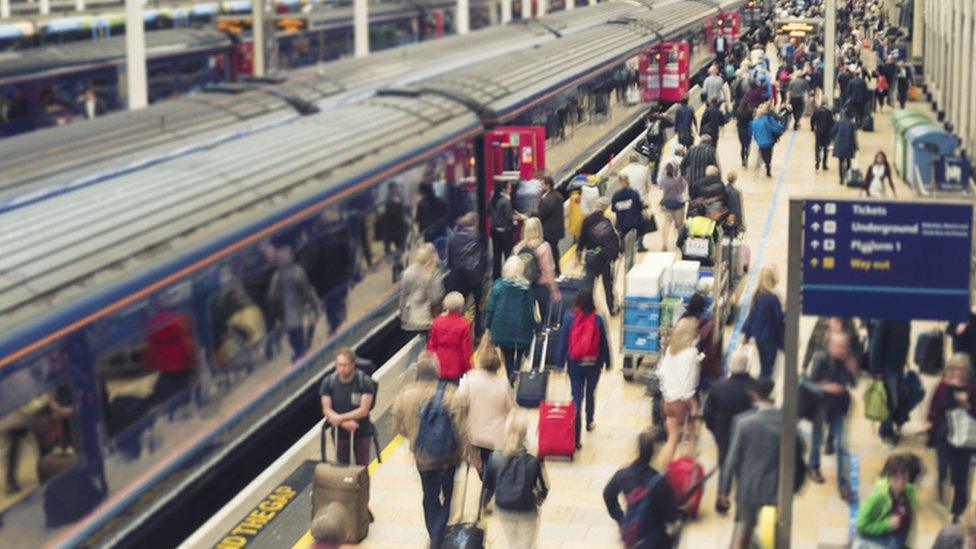
- Published4 June 2019
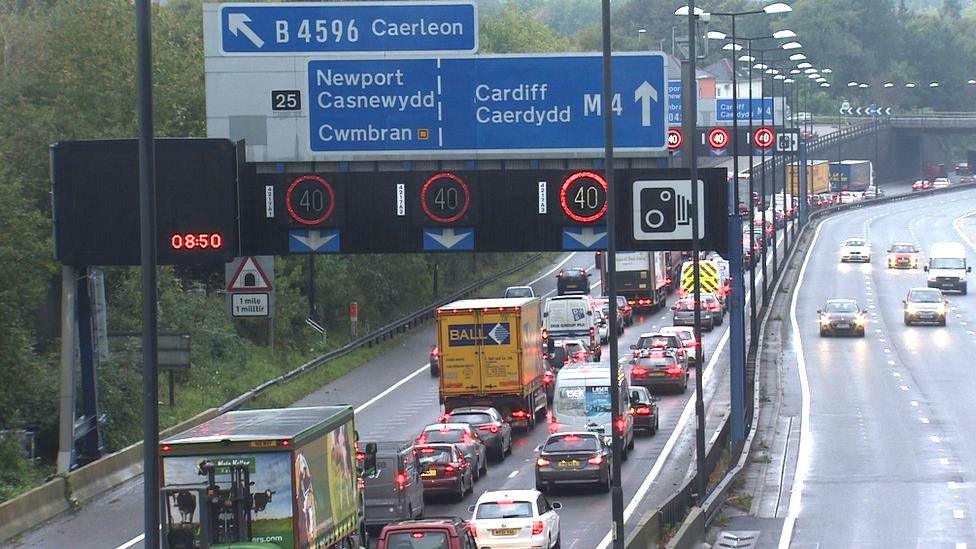
- Published23 January 2019

- Published14 October 2018
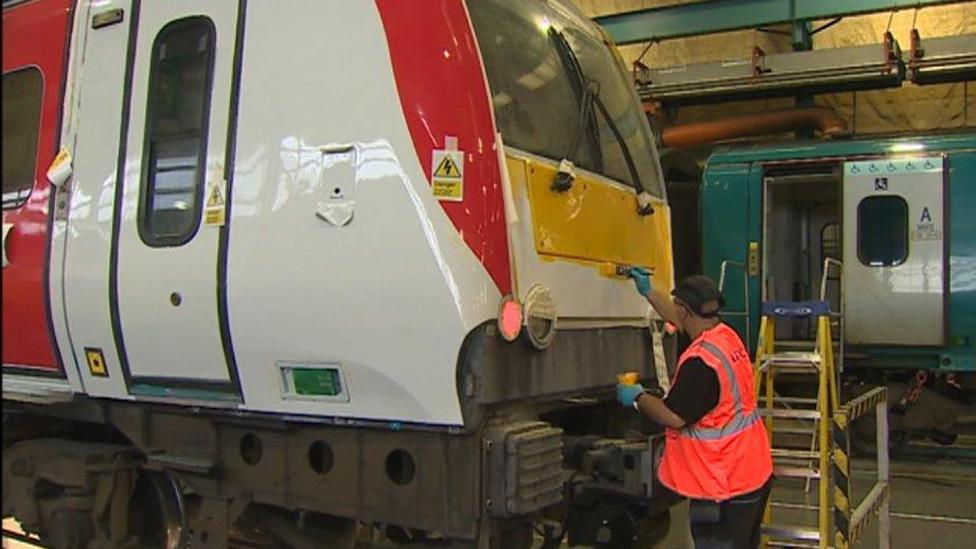
- Published16 December 2018
